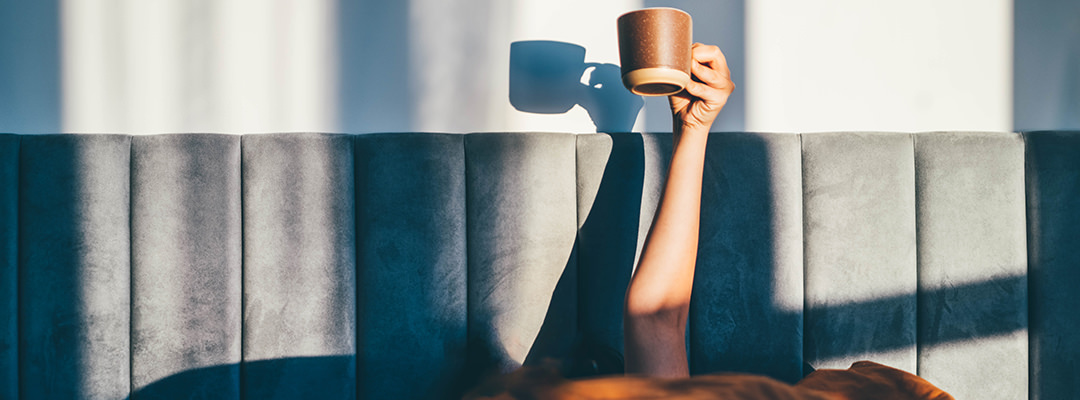Tucking yourself in bed seems more exciting and captivating in the morning hours. However, as an early riser, you may find it hard to initiate sleep in the early morning hours. This piece explores various benefits of waking up early and how to start waking up early.
Benefits of Waking Up Early
Better Sleep Quality
Waking up early ensures that you can get back to bed early. In addition, maintaining a strict wake-up schedule improves your sleep quality. You can also use a heated mattress pad for better sleeping. As a result, your body enjoys benefits like stronger immunity, healthy blood pressure levels, stable moods, improved brain function, and faster healing.
Improves Cognitive Functions
Whenever you rise early after a good night’s rest, you are energized and more equipped to have a successful day. In addition, a better cognitive performance like a good memory, stable moods, and more concentration capabilities that can help improve your work and school performance.
Better Mood and Mental Health
Studies show that early birds are likely to harbor more positive thoughts compared to late risers. Waking up early reduces your risk of depression, anxiety, and pessimism while making you more compliant, meticulous, and satisfied with life. Getting the recommended hours of sleep restores the body and mind to help you achieve holistic well-being.
Extra Time to Eat Breakfast
Waking up late means that you have to eat breakfast in a rush, at the office, or forgo it to avoid running late. An early riser can use the extra hours to prepare a well-rounded, healthy, and satiating meal. The satiating meal helps you avoid unnecessary cravings for first foods later on.
Improves Your Productivity
Waking up before the rest allows you to start pursuing your goals right away. You can make plans for each day, each week, or each month to avoid rushing in without a clear plan. Morning hours are best for completing pending projects with a fresh mind and undisturbed.
More organization translates into higher productivity at school and work. Use the morning hours to make relevant adjustments to your schedule to make room for last-minute developments. By not rushing into tasks, you can reduce the chances of making avoidable mistakes.
More Time for Morning Workouts
Your workout schedule may include aerobics, weightlifting, or both. Exercising in the morning gives you the mental and physical energy needed to make it through the day. Take advantage of morning workouts to reduce the risk of heart complications, regulate blood sugar, improve cognitive function, and maintain your body goals.
It Gives You Peace of Mind
Interacting with friends and colleagues during the day may leave you exhausted by the end of the day. Waking up early allows you to dive into your deepest thoughts to reflect upon your life, goals, memories, and dreams. You can also get to work before traffic builds up.
It Motivates You to Get Through the Day
Whenever an alarm rings, it reminds you of the need to wake up and face the day. However strong the temptation, you should get out of bed immediately. Mustering the energy to jolt out of bed at the first ring motivates you to brace for known and unknown challenges of the day.
How to Start Waking Up Early
Find Your Motivation
You should find a reason to drive you out of bed early. Focus on activities and projects that make you happy, like working out, preparing breakfast, gardening, watching the sunrise, or reading a chapter of your favorite novel. With the right reason, you do not have to snooze the alarm.
Maintain Sleeping Hygiene
You should have a set of rules to ensure that your bedroom is specifically reserved for sleep. For example, try limiting the use of electronics before bed, avoiding rigorous exercise at night, taking a shower before bed, eating lightly before bed, eating healthily, sticking to a bedtime routine, and making the room darker.
Make Small Changes Each Day
If you need to be an early riser, get a gradual road map accommodating the mental and physical transition. For example, consider waking up thirty minutes earlier each day until you get to your designated rising time. Adjusting your sleep pattern minimizes sleep inertia, fatigue, and sleep deprivation.
Set a Sleep Schedule
You are required to get between six to eight hours of undisturbed sleep each night. If you sleep and wake up around the same time, your body gets accustomed to the routine that an alarm may grow irrelevant. In addition, beds can get slightly uncomfortable for early risers in the morning.
Keep the Alarm Away from Your Bed
If the alarm rings next to your bed, you can snooze it and choose to sleep for five more minutes. Unfortunately, five minutes may translate into an hour or more. Leave your alarm at a point that forces you out of bed to turn it off, and you will find trouble initiating sleep after that.
Get Out of Bed Immediately
Your alarm tone may fall among the most irritating sounds likely to ruin your morning. To get the most from rising early, embrace your alarm’s sound and be ready to jump out of bed at the designated time. Cultivate self-discipline to ensure that you can get out of bed straight away.
Hang Out with Early Risers
To cement your newfound character of waking up early, you should get more friends that don’t hesitate to leave their beds. Your crew of early risers can include members of your book club, gym partners, and workmates. Every morning, you are motivated to meet friends who help you gather more energy to get you through the day with much ease.
Avoid Blue Lights Before Bed
Television and electronic devices emit blue light that affects the production of melatonin, a sleep-inducing hormone. Low melatonin limits your ability to initiate sleep. So schedule your time to turn off the TV and smartphones about an hour before bed.
Waking up early is highly recommended for its numerous benefits. However, while starting on it, you should consider various factors limiting you from getting enough sleep. To avoid begrudging the idea of an early riser, make an exception for a sick day or when genuinely exhausted.
Did you like it?4.5/5 (26)





